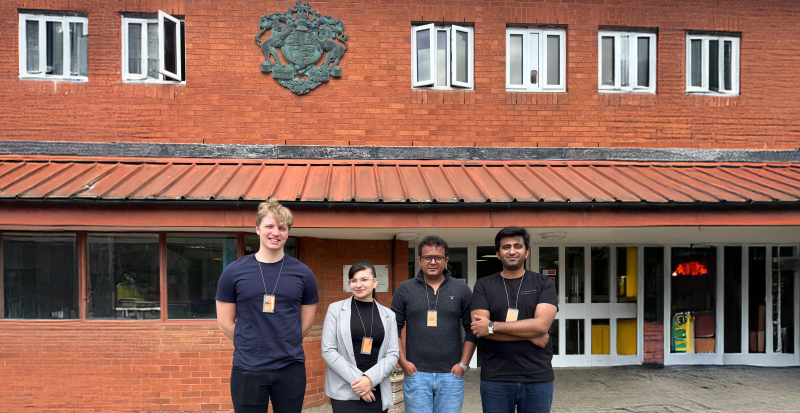Helping prisoners understand parole and reduce re-offending

A group of law students has been getting a taste of life behind bars through a new initiative that involves conducting mock hearings with real prisoners.
Students from Hertfordshire Law School, supported by academics and a prison solicitor, have been granted access to HMP The Mount as part of a programme designed to help prisoners better understand the parole system.
During their time at the prison, aspiring lawyers were split into four-person groups made up of both undergraduate and postgraduate participants. They delivered workshops to 20 male inmates as part of a scheme that Hertfordshire Law School describes as the first of its kind. The aim, the school says, is to reduce reoffending and help ease prison overcrowding.
The three-part workshops began with an overview of the parole process, followed by advocacy skills training.
For the third part, they tackled a fictional case involving a prisoner eligible for parole. This included drafting written representations and culminated in a mock oral hearing. They took on various roles in the hearing — including parole board member, probation officer, and legal representative. While some drafted questions, others tested their advocacy skills in responding to them.
Speaking about his experience, second-year student Austin Lutwyche said:
“The project has helped me to understand the life of prisoners and the process they undertake to get parole. This has led me to develop my public speaking skills which allow me to make any adjustments while I am working with the inmates. There is a strong possibility after hearing my own feedback that I can do very well in this field. I am also looking at becoming a barrister and using the skills from the prison project to help with trial advocacy.”
The university describes feedback from prisoners as “really positive” with comments noting prisoners feel more relaxed about approaching parole and better understand the process.
Based on a former RAF base, The Mount is a “Category C” prison — the lowest level of closed security, just above open “Category D” prisons. It houses over 1,000 male prisoners who have “committed a range of offences”, according to a government website.
Zaherah Saghir, senior lecturer at Hertfordshire Law School, said, “Prisoners need to see parole from the other side so they can begin to understand the role of the parole board.” She added, “There are more than an average proportion of prisoners with learning difficulties such as dyslexia, so they need extra guidance with completing forms and understanding their parole dossier.”
Hertfordshire law school previously ran education classes to help reduce re-offending, and they are now contributing to an AI education assistant to tailor courses to individual inmates’ needs.

